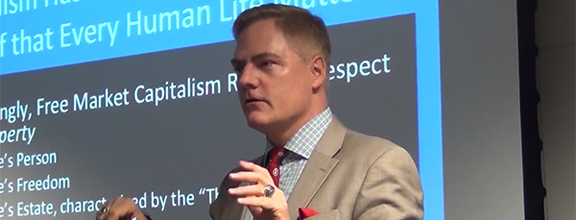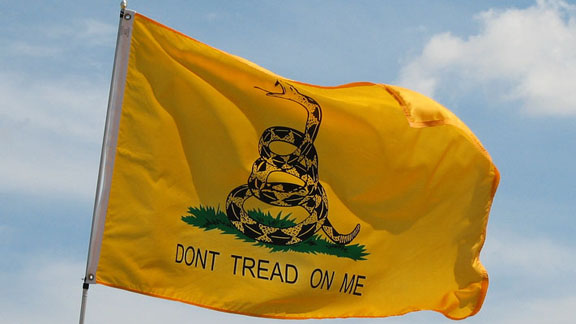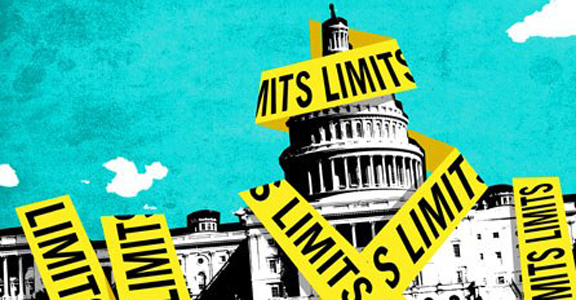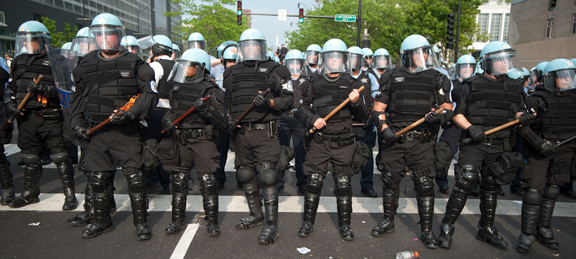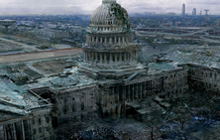To conclude our discussion, read the following debate excerpt, in which Tom G. Palmer argues that one can have ordered liberty without an overt state to enforce it. He paints a picture of a society where the state is completely unnecessary—perhaps the true libertarian’s utopia.
The Case for Ordered Liberty Without States | By Tom G. Palmer (Source)
Thank you for opportunity to talk about such an interesting topic. I spend most of my time abroad and when in China or Russia or Brazil or Afghanistan or Tajikistan or Kenya I usually make the case for limited government, which I consider to be a great advance over unlimited government. But here we can discuss not only the immediate questions of the day, but also our ideals.
Let’s start with a clear definition of the issue. “Anarchy” comes from Greek Archon, originally the first in a war party, and later used to mean ruler, suggesting the origins of rulership in war. So to be anarchia means to be “without a ruler.” It does not mean to be disordered; it’s a topic for investigation whether that’s a consequence of being without a ruler. That’s the issue at stake here. Does being without a ruler mean forgoing order, law, and the security of life, liberty, and estate that we hold dear? The answer is, it depends. It depends on the presence or absence of other institutions, that are not generally themselves dependent on the existence of a ruler.
For the dominant form of rulership that has almost completely displaced the others over the whole planet, I’ll use Max Weber’s canonical definition of the state from as
“that human community which (successfully) lays claim to the monopoly of legitimate physical violence within a certain territory, this ‘territory’ being another of the defining characteristics of the state.”
In the US, the term government is almost always used as a synonym for the state, unlike other English—speaking countries, where government refers to the prime minister and cabinet.
I prefer limited states to unlimited states, and, all things being equal, I prefer stateless liberty, stateless rule of law, and stateless order. No doubt John and Mark and some of you are saying, “But that’s not possible! You can’t have liberty, law, and order without a state. “ I disagree.
My argument has four parts.
First: Law and order without a state are possible. In fact, you don’t have to turn to obscure cases in medieval Iceland or Ireland or 19th century Nevada mining camps. Most of the law and order we observe around us comes from non—state initiative. There is a massive non—state system for generating laws in this country. Indeed, commercial law is overwhelmingly the product, not of state legislatures, but of private parties ordering their affairs. Debts are overwhelmingly collected by private collection agencies, not by the state. The common estimate is that there are at least twice as many private police, security guards, as police employed and empowered by the state, and the overwhelming majority of fugitives from the legal system who are returned are caught by private citizens, bounty hunters who are employed by bail bondsmen, also private citizens. And that happens with a tiny fraction of the violence – even brutality – routinely employed by state—empowered agents.
Second: John and Mark will say that they oppose violence and brutality. They want their state to be limited. Their intentions are noble. But my interest is institutions and incentives. What incentives does a monopoly have to produce good products? Think about it. Monopoly car companies, dairies, and phone companies, have little incentive to cut costs, lower prices, increase quality, and so on. Why should the producers of law and order be any different?
Third: States systematically create crimes without victims. Indeed, the definition of a crime is an act against the state. If I were to strike John, the aggrieved party in any resulting criminal case would be the state, not John. States systematically expand their powers to punish behavior for which there is no complaining victim. No one turns himself or herself in for smoking pot or having consensual sex or engaging in thought crime. So the state employs vast armies of spies, snitches, and surveillance teams to uncover that behavior and punish it. And they get away with it by making the victims pay the bill. The costs of their own victimization are called “taxes.” When you eliminate states you make it harder to prosecute or punish so—called crimes without victims. That’s a big plus for a friend of liberty.
Fourth: States systematically create the conditions to legitimize their existence. Crises, wars, and the like are exploited by states to legitimate the expansions of their own powers. As Thomas Paine noted in The Rights of Man, vol. I, “In reviewing the history of the English government, its wars and its taxes, a by-stander, not blinded by prejudice, nor warped by interest, would declare, that taxes were not raised to carry on wars, but that wars were raised to carry on taxes.”I prefer a world without wars, without taxes, without the systematic injustice that comes from any body of persons insisting that they are sovereign, that is, that they are above the laws. I prefer a world of ordered liberty, the rule of law, and peace. And in that world, there are no states.
PostScript: In the rebuttals and discussions, I raised the question of how many people are killed by privately employed security guards compared to state—‐ empowered police. The incentives facing the different categories of parties are fairly clear, but data on that and related questions are very, very hard to come by. In the 2001 report of the Bureau of Justice Statistics of the Office of Justice Programs of the U.S. Department of Justice, “Policing and Homicide, 1976—‐98: Justifiable Homicide by Police, Police Officers Murdered by Felons” (Jodi M. Brown and Patrick A. Langan, March 2001, NCJ 180987), it is stated that “Police justifiably kill on average nearly 400 felons each year.” The definitions used by the authors of the Department of Justice Study are noteworthy:
“In this report, killings by police are referred to as ‘justifiable homicides’ and the persons that police kill are referred to as ‘felons.’ These terms reflect the view of the police agencies that provide the data used in this report.”
The significance of defining all those killed by police as felons and all killings by police as justifiable homicides was not lost on the audience.
These remarks were delivered during a debate on whether liberty can be enjoyed without a (limited) state. The debate featured John Mackey, Douglas Casey, Mark Skousen, and Tom G. Palmer, and occurred at Freedom Fest in Las Vegas, Nevada, on July 8, 2010. Opening cases were limited to 5 minutes.



